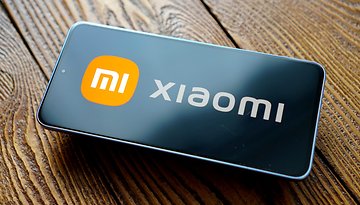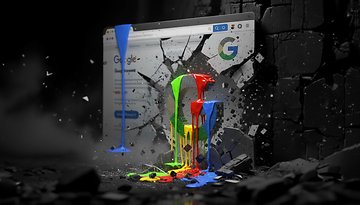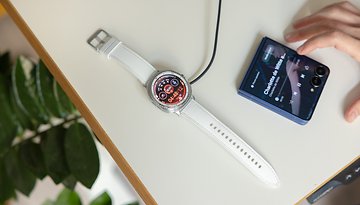Are You Safe? AI Won't Make These Jobs Redundant!


Will AI steal all our jobs tomorrow? Or is AI nothing more than overrated hype? In all probability, neither is true. However, Microsoft conducted a study to explore how artificial intelligence is already impacting our professions today, yielding some remarkable findings.
The current AI revolution is changing jobs — not sometime in the future, but right now. Microsoft conducted a study to investigate the experiences of individuals in various professions. Spoiler alert: Most of us won't have to look for a new job tomorrow.
Microsoft: These jobs are most affected by automation
What exactly did Microsoft do? Over 200,000 anonymized conversations that Americans had with Co-pilot were examined. Based on these conversations, a very different picture emerged, detailing how labor markets are already undergoing significant changes. We already see major changes in jobs that involve conveying information and communication. In the manual sector, on the other hand, the impact still seems to be very manageable.
Results were used to determine a score that depicts the degree of automation. Do understand this is not about giving individual professions an expiry date. Rather, it shows the extent to which an occupation already involves artificial intelligence.
Before we classify the figures, let's examine the tables first. You can see the 40 occupations that showcase the highest degree of automation, followed by an overview of jobs with the lowest values:
Jobs with the highest AI applicability score
| Rank | Job title | Score | Employees (USA) |
|---|---|---|---|
| 1 | Translators and interpreters | 0.49 | 51,560 |
| 2 | Historians | 0.48 | 3,040 |
| 3 | Passenger attendants | 0.47 | 20,190 |
| 4 | Sales representatives of services | 0.46 | 1,142,020 |
| 5 | Writers and authors | 0.45 | 49,450 |
| 6 | Customer service representatives | 0.44 | 2,858,710 |
| 7 | CNC tool programmers | 0.44 | 28,030 |
| 8 | Telephone operators | 0.42 | 4,600 |
| 9 | Ticket agents and travel clerks | 0.41 | 119,270 |
| 10 | Broadcast announcers and radio DJs | 0.41 | 25,070 |
| 11 | Brokerage Clerks | 0.41 | 48,060 |
| 12 | Farm and home management educators | 0.41 | 8,110 |
| 13 | Telemarketers | 0.40 | 81,580 |
| 14 | Concierges | 0.40 | 41,020 |
| 15 | Political scientists | 0.39 | 5,580 |
| 16 | News analysts, reporters, journalists | 0.39 | 45,020 |
| 17 | Mathematicians | 0.39 | 2,220 |
| 18 | Technical writers | 0.38 | 47,970 |
| 19 | Proofreaders and copy markers | 0.38 | 5,490 |
| 20 | Hosts and hostesses | 0.37 | 425,020 |
| 21 | Editors | 0.37 | 95,700 |
| 22 | Postsecondary business teachers | 0.37 | 82,980 |
| 23 | PR specialists | 0.36 | 275,550 |
| 24 | Demonstrators and product promoters | 0.36 | 50,790 |
| 25 | New accounts clerks | 0.36 | 108,100 |
| 26 | Customer advisor for new customers | 0.36 | 41,180 |
| 27 | Statistical assistants | 0.36 | 7,200 |
| 28 | Counter and rental clerks | 0.36 | 390,300 |
| 29 | Data scientists | 0.36 | 192,710 |
| 30 | Personal financial advisors | 0.35 | 272,190 |
| 31 | Archivists | 0.35 | 7,150 |
| 32 | Postsecondary economics teachers | 0.35 | 12,210 |
| 33 | Web developers | 0.35 | 85,350 |
| 34 | Management analysts | 0.35 | 838,140 |
| 35 | Geographers | 0.35 | 1,460 |
| 36 | Models | 0.35 | 3,090 |
| 37 | Market research analysts | 0.35 | 846,370 |
| 38 | Public safety telecommunicators | 0.35 | 97,820 |
| 39 | Switchboard operators | 0.35 | 43,830 |
| 40 | Postsecondary library science teachers | 0.34 | 4,220 |
And here are the professions that currently seem to be the least suitable for AI:
Jobs with the lowest AI applicability score
| Rank | Job title | Score | Employees (USA) |
|---|---|---|---|
| 1 | Dredge operators | 0.00 | 340 |
| 2 | Bridge and lock tenders | 0.00 | 3,460 |
| 3 | Water treatment plant and system operators | 0.00 | 120,710 |
| 4 | Foundry mold and coremakers | 0.00 | 2,700 |
| 5 | Rail-track laying and maintenance equipment operators | 0.00 | 4,010 |
| 6 | Pile drivers | 0.00 | 3,010 |
| 7 | Floor sanders and finishers | 0.00 | 4,510 |
| 8 | Orderlies | 0.01 | 48,710 |
| 9 | Motorboat operators | 0.01 | 2,710 |
| 10 | Logging equipment operators | 0.01 | 23,720 |
| 11 | Paving, surfacing, and tamping equipment operators | 0.01 | 43,080 |
| 12 | Maids and housekeeping cleaners | 0.01 | 836,230 |
| 13 | Roustabouts (oil and gas) | 0.01 | 43,880 |
| 14 | Roofers | 0.01 | 135,140 |
| 15 | Gas compressor and gas pumping station operators | 0.01 | 4,400 |
| 16 | Helpers–roofers | 0.01 | 4,540 |
| 17 | Tire builders | 0,01 | 20,660 |
| 18 | Surgical assistants | 0.01 | 18,780 |
| 19 | Massage therapists | 0.01 | 92,650 |
| 20 | Ophthalmic medical technicians | 0.01 | 73,390 |
| 21 | Industrial truck and tractor operators | 0.01 | 778,920 |
| 22 | Supervisors of firefighters | 0.01 | 81,120 |
| 23 | Cement masons and concrete finishers | 0.01 | 203,560 |
| 24 | Dishwashers | 0.02 | 463,940 |
| 25 | Machine feeders and offbearers | 0.02 | 44,500 |
| 26 | Packaging and filling machine operators | 0.02 | 371,600 |
| 27 | Medical equipment preparers | 0.02 | 66,790 |
| 28 | Highway maintenance workers | 0.02 | 150,860 |
| 29 | Production assistants | 0.02 | 181,810 |
| 30 | Prosthodontists | 0.02 | 570 |
| 31 | Tire repairers and changers | 0.02 | 101,520 |
| 32 | Ship engineers | 0.03 | 8,860 |
| 33 | Automotive glass installers and repairers | 0.03 | 16,890 |
| 34 | Oral and maxillofacial surgeons | 0.03 | 4,160 |
| 35 | Plant and system operators (all other) | 0.03 | 15,370 |
| 36 | Embalmers | 0.03 | 3,380 |
| 37 | Helpers–painters, plasterers, and similar | 0.03 | 7,700 |
| 38 | Hazardous materials removal workers | 0.03 | 49,960 |
| 39 | Nursing assistants | 0.03 | 1,351,760 |
| 40 | Phlebotomists | 0.03 | 137,080 |
What does the study say, and what does it explicitly remain silent on?
I would like to clarify that the figures collected by Microsoft are not used to make a definitive statement about whether a profession is at risk. If you find your profession in the list with a high score, this simply means this profession is already benefiting greatly from the use of artificial intelligence. The score measures how often AI is used to perform certain tasks. Translators and journalists can already use AI to a much greater extent than in many other professions.
Conversely, people in skilled trades have to live with the fact that they can rely on far less AI support. So, if you're a dredge operator or an orderly, you don't need to worry too much about artificial intelligence taking over your job for the time being, in both a good and a bad sense.
Use of AI ≠ loss of jobs
It would be misleading to infer job losses from this, which is why you should take a positive view of the study. Do you make a living from sales? If so, you can use AI to get rid of unpleasant, repetitive work and focus more on the exciting, creative aspects.
The study even explicitly warned against drawing short-sighted conclusions. A high score does not mean an AI can reproduce your job 1:1, but only where certain areas of your job profile can be performed by an artificial intelligence. Don't underestimate the importance of the organizational context in your company or human judgment.
That said, don't forget that only Co-pilot formed this basis — a single tool from a sea of LLMs (Large Language Models). The result is a very general picture of the situation, but certainly not a representative one.
AI is your friend
The study also noted that 40 percent of the tasks performed by AI are completely different from what the respective users intended to achieve. This confirms AI is not taking over your job, but rather, acting as an assistant in a supportive role.
Of course, this does not discount the fact that you should also be willing to accept such external help. If you refuse to accept help from AI, your job may be at stake after all. However, you would not be replaced by an AI, but by a human who is willing to work alongside artificial intelligence.



















